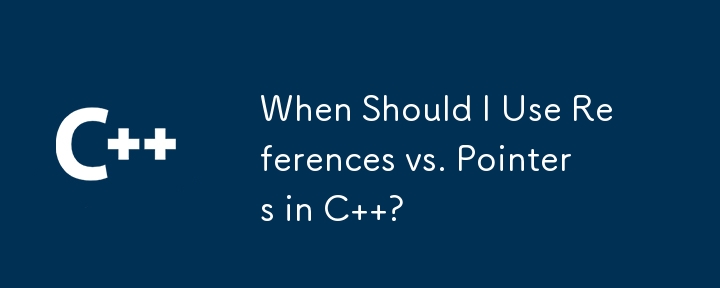

Passing by Reference vs. Pointer in C
In C , understanding when to use references and pointers can be a confusing topic. This article explores the nuances of passing by reference and by pointer, providing practical guidelines.
Pass by Reference:
Passing by reference is recommended when you need to:
Pass by Pointer:
Passing by pointer is necessary when:
Best Practices:
As a general rule, prefer passing by reference whenever possible. However, when dealing with literals, null pointers, or situations where you need to modify the pointer itself, pass by pointer.
Example:
The code snippet provided passes a pointer to a dynamically allocated vector to a map. This is a valid approach because we need to both create a new vector and pass it by reference to the map. By using pointers, we avoid the need to copy the entire vector.
#include <iostream>
#include <vector>
#include <map>
#include <string>
#include <tr1/memory>
#include <algorithm>
using namespace std;
using namespace std::tr1;
int main(){
map<string, shared_ptr<vector<string>>> adjacencyMap;
vector<string>* myFriends = new vector<string>();
myFriends->push_back(string("a"));
myFriends->push_back(string("v"));
myFriends->push_back(string("g"));
adjacencyMap["s"] = shared_ptr<vector<string>>(myFriends);
return 0;
}The above is the detailed content of When Should I Use References vs. Pointers in C ?. For more information, please follow other related articles on the PHP Chinese website!




